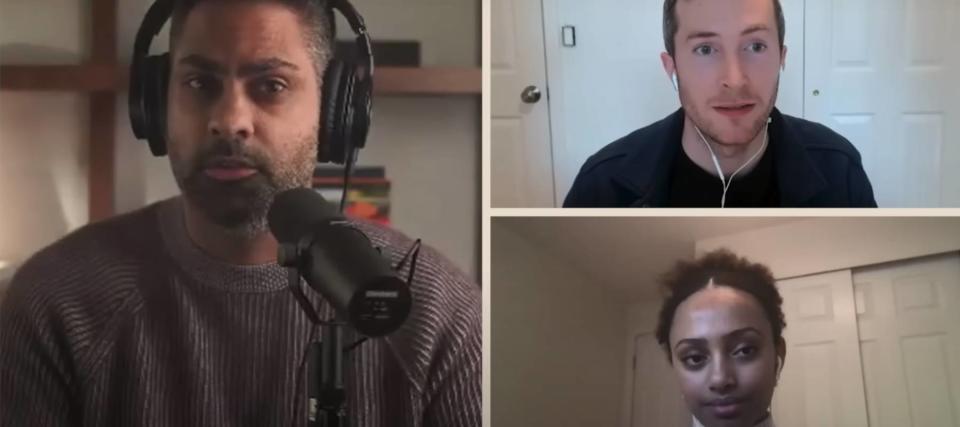
[ad_1]

Ramit Sethi doesn’t think homebuying is for everyone.
The host of Netflix’s “How to Get Rich” and the YouTube channel “I Will Teach You To Be Rich” makes his opinion clear in Episode 111 on his channel.
Don’t miss
In the video, Sethi speaks with a married couple — Jonathan and Shalom in Seattle — who just swapped their $1,800 a month rent for a $4,150 mortgage payment. As a result, Jonathan says he’s started having near nightly panic attacks and the couple is fighting over whether to buy furniture.
According to Sethi, the couple followed a trend that traps many buyers: They bought based on real estate marketing and not what they can afford. To avoid the same mistake, Sethi encourages aspiring homeowners to answer a series of questions before they buy.
Five questions to ask before buying a home
Sethi lists five questions to help you determine whether you’re ready to buy a home — and the answers may reveal that you need more time.
That being said, it’s important to take advice from online experts and gurus with a grain of salt. Sethi’s a self-proclaimed personal finance adviser, but his background is in psychology and technology. His advice is all common sense, but keep in mind that when it comes to your finances, the best advice you’ll receive generally will come from a professional financial adviser who’s reviewed your situation and has spoken with you about your goals.
1. Will you live there for 10-plus years?
Sethi says you should think of homebuying as a long-term move. Why? Because buying is expensive and it takes time to recover the sunk costs. These significant but often overlooked expenses include (but are not limited to) closing costs, furnishing the home and moving.
2. Is your total monthly housing cost lower than 28% of your gross monthly income?
Many lenders consider a mortgage affordable if the monthly payment is 28% or less of your monthly gross income. You may also hear this referred to as the “front-end ratio.”
But coming in under 28% doesn’t guarantee a home is affordable. Even if a lender approves you, the mortgage might still be outside your budget. The lender’s calculations won’t include major, non-debt expenses such as daycare and groceries. In other words, do the math to make sure the mortgage fits into your overall budget.
Read more: ‘Hold onto your money’: Jeff Bezos says you might want to rethink buying a ‘new automobile, refrigerator, or whatever’ — here are 3 better recession-proof buys
3. Have you saved a 20% down payment?
According to Sethi’s website, “If you haven’t saved a 20% down payment, you’re not ready to buy a house.” He says this figure, aside from dismissing private mortgage insurance (PMI), shows that you know how to save money.
Buyers should keep in mind that you can be approved for a mortgage even if you save far less than 20% but the more you save for your down payment, the better (and more affordable) your loan terms.
4. Are you OK if the value of your house goes down?
One of Sethi’s most insightful tips is to not assume your home will increase in value. Yes, homes appreciate by an average of 4.3% a year according to the Federal Housing Finance Agency. But the growth isn’t always linear and unpredictable market trends (think rising interest rates or a glut of available homes in your local market) can make it hard to sell.
5. Are you excited about buying?
Finally, Sethi says to stop the process if you feel dread. Taking emotional as well as financial inventory can be a challenge, since falling in love with a home can cloud your judgment — and a degree of buyer’s remorse is inevitable.
But if you buy because you feel you shouldn’t rent, there’s pressure to jump on a deal.
And if you want to make the move for any reason other than it’s a sound financial move with plenty of positives for you and your household, don’t do it.
What to read next
This article provides information only and should not be construed as advice. It is provided without warranty of any kind.
[ad_2]